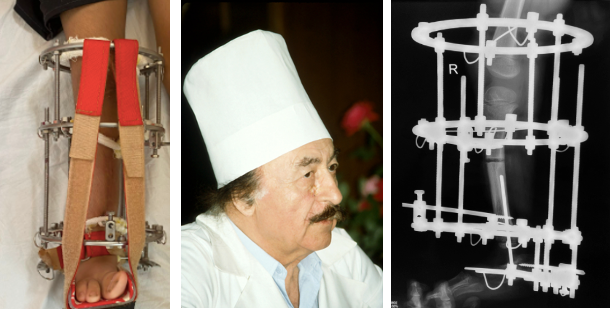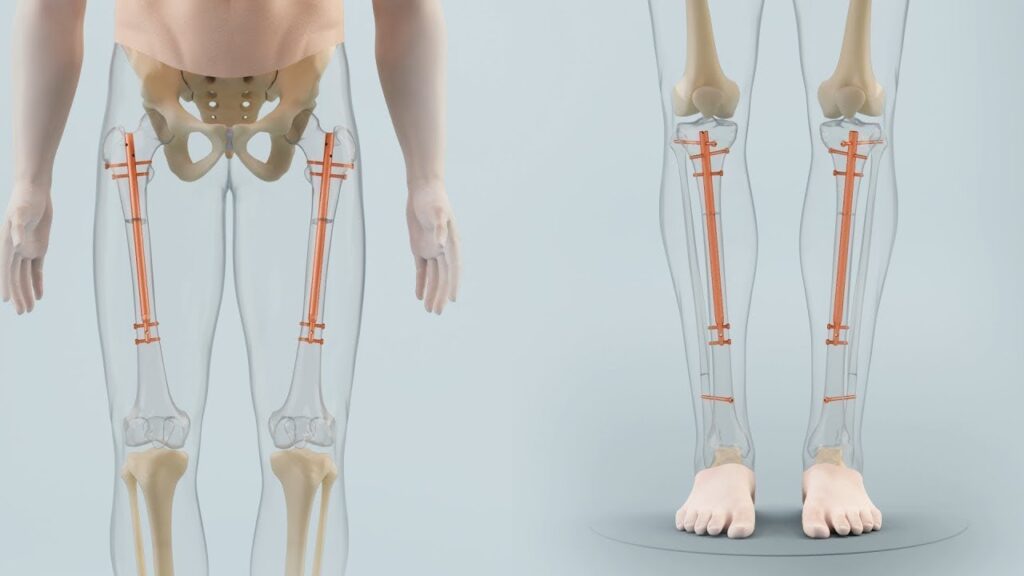Explore the psychological considerations for limb lengthening surgery, including pre-surgery evaluations, emotional challenges, and mental health support. Learn how to prepare both mind and body for this transformative procedure.

Outline
| Headings | Sub-Headings |
|---|---|
| Introduction | – Understanding Limb Lengthening Surgery |
| What is Limb Lengthening Surgery? | – Basic Overview |
| – History and Evolution | |
| Importance of Psychological Preparation | – Emotional Readiness |
| – Impact on Mental Health | |
| Pre-Surgery Psychological Evaluation | – Initial Assessment |
| – Mental Health Screening | |
| – Setting Realistic Expectations | |
| Common Psychological Challenges | – Anxiety and Fear |
| – Depression and Mood Swings | |
| – Body Image Concerns | |
| Mental Health Support During Surgery | – Counseling Services |
| – Support Groups | |
| – Ongoing Therapy | |
| Post-Surgery Psychological Considerations | – Coping with Recovery |
| – Monitoring for Post-Surgery Depression | |
| – Reintegration into Daily Life | |
| Success Stories and Patient Testimonials | – Real-Life Experiences |
| – Medical Case Studies | |
| The Role of Family and Friends | – Providing Emotional Support |
| – Encouraging Positive Mindset | |
| Technological Advances in Limb Lengthening Surgery | – Modern Techniques |
| – Future Innovations | |
| Ethical Considerations | – Medical Ethics |
| – Informed Consent | |
| FAQs | – |
| – Why is psychological preparation important for limb lengthening surgery? | |
| – What mental health support is available during the surgery process? | |
| – How can patients manage anxiety before surgery? | |
| – What are common psychological challenges post-surgery? | |
| – How can family and friends support a patient undergoing limb lengthening surgery? | |
| – What advancements are being made in limb lengthening surgery? | |
| Conclusion | – |
Psychological Considerations for Limb Lengthening Surgery: Preparing Mind and Body
Limb lengthening surgery is a complex and transformative procedure that requires careful psychological preparation. This article explores the psychological considerations for limb lengthening surgery, highlighting the importance of mental health support, common emotional challenges, and the role of family and friends in the recovery process.
Introduction
Limb lengthening surgery, initially developed to correct limb discrepancies and deformities, is now also sought for cosmetic purposes. While the physical aspects of the surgery are well-documented, the psychological considerations are equally crucial for a successful outcome.
What is Limb Lengthening Surgery?
Basic Overview
Limb lengthening surgery involves gradually stretching bones to increase their length. This is typically achieved through a surgical technique known as distraction osteogenesis, where the bone is cut and slowly separated to allow new bone tissue to form in the gap.
History and Evolution
The history of limb lengthening surgery dates back to ancient attempts using rudimentary methods. Modern techniques have evolved significantly, particularly with the development of the Ilizarov method in the mid-20th century, which has paved the way for advanced surgical interventions today.
Importance of Psychological Preparation
Emotional Readiness
Emotional readiness is crucial for patients undergoing limb lengthening surgery. The process is physically demanding and requires a strong mental state to cope with the challenges of surgery and recovery.
Impact on Mental Health
The surgery and recovery process can significantly impact mental health. Patients may experience anxiety, depression, and other emotional challenges. Preparing psychologically helps mitigate these effects and promotes a smoother recovery.
Pre-Surgery Psychological Evaluation
Initial Assessment
An initial psychological assessment is essential to determine a patient’s emotional and mental preparedness for the surgery. This includes evaluating their understanding of the procedure and its implications.
Mental Health Screening
Mental health screening identifies any underlying psychological issues that could complicate the surgery or recovery process. This step ensures that patients receive the necessary support and interventions.
Setting Realistic Expectations
Setting realistic expectations is crucial for patients undergoing limb lengthening surgery. Understanding the potential outcomes, risks, and the recovery timeline helps patients prepare mentally and emotionally for the journey ahead.
Common Psychological Challenges
Anxiety and Fear
Anxiety and fear are common psychological challenges faced by patients before surgery. Concerns about the procedure, potential complications, and the recovery process can cause significant stress.
Depression and Mood Swings
Depression and mood swings can occur during the lengthy recovery process. The physical limitations and the slow pace of recovery can lead to feelings of frustration and helplessness.
Body Image Concerns
Body image concerns are prevalent among patients undergoing cosmetic limb lengthening. Adjusting to the new body image and dealing with societal perceptions can be psychologically challenging.
Mental Health Support During Surgery
Counseling Services
Counseling services provide essential mental health support during the surgery process. Professional counselors help patients navigate their emotions, offering strategies to cope with anxiety and stress.
Support Groups
Support groups connect patients with others undergoing similar experiences. Sharing stories and receiving support from peers can significantly alleviate feelings of isolation and provide encouragement.
Ongoing Therapy
Ongoing therapy is crucial for addressing long-term psychological challenges. Regular sessions with a mental health professional help patients manage their emotions and maintain a positive outlook throughout the recovery process.
Post-Surgery Psychological Considerations
Coping with Recovery
Coping with the recovery process requires mental resilience. Patients must adapt to physical limitations, manage pain, and stay motivated despite the slow progress.
Monitoring for Post-Surgery Depression
Monitoring for post-surgery depression is essential. Early identification and intervention can prevent long-term psychological issues and promote a healthier recovery.
Reintegration into Daily Life
Reintegrating into daily life after surgery can be challenging. Patients may need support to rebuild their routines, return to work or school, and engage in social activities.
Success Stories and Patient Testimonials
Real-Life Experiences
Many patients share their success stories following limb lengthening surgery. These testimonials highlight the transformative impact of the procedure on their lives, both physically and psychologically.
Medical Case Studies
Medical case studies provide valuable insights into the psychological aspects of limb lengthening surgery. These studies contribute to a better understanding of patient experiences and inform best practices for mental health support.
The Role of Family and Friends
Providing Emotional Support
Family and friends play a critical role in providing emotional support during the surgery and recovery process. Their encouragement and understanding can significantly impact a patient’s mental well-being.
Encouraging Positive Mindset
Encouraging a positive mindset is essential for a successful recovery. Loved ones can help patients stay motivated, celebrate small milestones, and maintain a hopeful outlook.
Technological Advances in Limb Lengthening Surgery
Modern Techniques
Modern techniques in limb lengthening surgery include advanced external fixators, motorized internal lengthening nails, and minimally invasive surgical methods. These innovations have improved precision and patient comfort.
Future Innovations
Future innovations in limb lengthening surgery may include the use of robotics, 3D printing, and regenerative medicine to enhance the precision, safety, and outcomes of the procedures.
Ethical Considerations
Medical Ethics
Ethical considerations in limb lengthening surgery include informed consent, patient autonomy, and the potential for psychological impacts. Ensuring ethical standards is crucial for patient trust and successful outcomes.
Informed Consent
Informed consent is a critical aspect of ethical medical practice. Patients must fully understand the risks, benefits, and potential psychological impacts of limb lengthening surgery before proceeding.
FAQs
Why is psychological preparation important for limb lengthening surgery?
Psychological preparation is important to ensure patients are emotionally and mentally ready to handle the challenges of surgery and recovery, reducing the risk of anxiety, depression, and other mental health issues.
What mental health support is available during the surgery process?
Mental health support includes counseling services, support groups, and ongoing therapy to help patients manage their emotions and stay motivated throughout the surgery and recovery process.
How can patients manage anxiety before surgery?
Patients can manage anxiety through counseling, relaxation techniques, support groups, and setting realistic expectations about the surgery and recovery process.
What are common psychological challenges post-surgery?
Common psychological challenges post-surgery include depression, mood swings, body image concerns, and coping with the slow recovery process.
How can family and friends support a patient undergoing limb lengthening surgery?
Family and friends can provide emotional support, encourage a positive mindset, celebrate small milestones, and help the patient reintegrate into daily life.
What advancements are being made in limb lengthening surgery?
Advancements include motorized internal lengthening nails, minimally invasive techniques, and potential future innovations like robotics and regenerative medicine.
Conclusion
Psychological considerations are a vital aspect of limb lengthening surgery. Proper mental health support and preparation can significantly enhance the overall success of the procedure, ensuring that patients are not only physically but also emotionally ready for this transformative journey.



